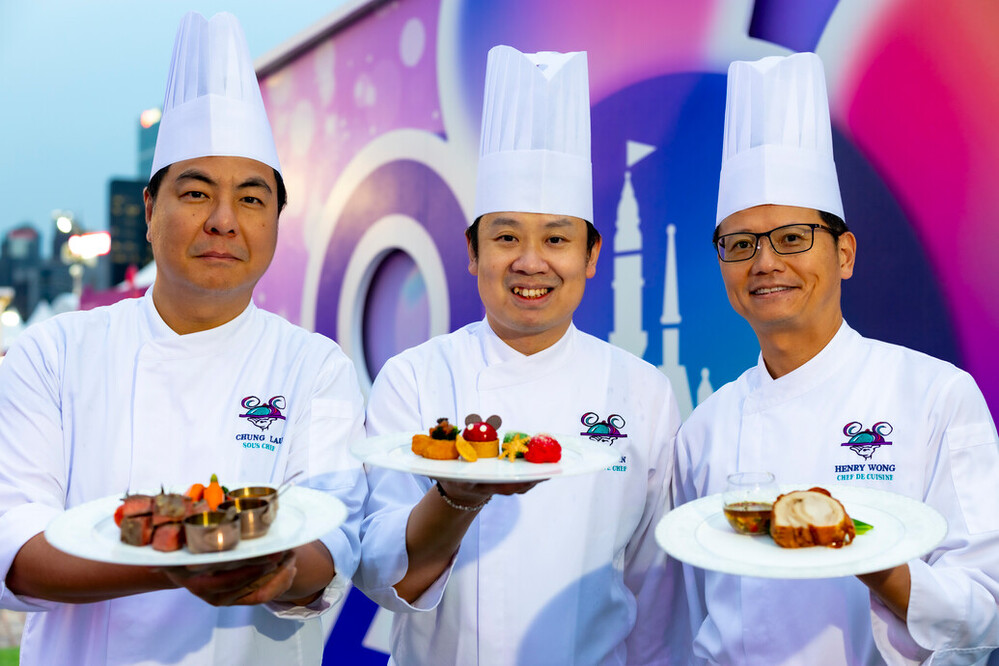JAKARTA The traffic condition in the Indonesian capital of Jakarta can make designing offsite activities a challenge for event organisers, but luckily, the availability of unique and creative restaurant concepts makes the effort worthwhile.
Dapur Babah, by Tugu Hotels Group in Indonesia, takes diners back to the glorious days of Batavia by refurbishing a pair of 1940s shophouses on Jalan Veteran, just off the city's central Merdeka Square. From Plaza Indonesia, it takes about 20 minutes to get here, depending on road conditions.
The term “Babah” refers to the Peranakan community formed by cross-cultural marriages between Chinese settlers and native Javanese women during the Dutch colonial era. Like in Macau and Malacca, these mixed-race families in time created a unique cuisine of their own, incorporating into their food not just Chinese and Indonesian elements but also the Dutch influence.
Stepping into Dapur Babah, you’d feel like you had entered the house of a prominent Babah family in the early 20th century, with reclaimed teak furniture, old photos on the walls and rustic housewares such as scales, meat grinders, pestles and mortars placed around the interior creating an authentic feel. Anhar Setjadibrata, owner of Tugu Hotels, supplied the antiques seen in the interior while his daughter Lucienne designed the restaurant. The signboard of Hap Liong Tailor, the shophouses’ original tenant, has been retained and hangs high above the main dining area.

But what makes Dapur Babah an ideal venue for event is its layout: there are many rooms of different sizes and themes, each providing an exceptional experience. Megawati Room, ideal for 10-30 guests, is a Javanese-style space dedicated to Indonesia’s first female president as well as daughter of the country’s founding father, Soekarno. Tao Bar Room, suitable for a group of 20 to 40 people, is decorated with antiques from Tibet, India, Cambodia and Indonesia and bold-coloured walls. Equally spiritual is the Kwan Yin Room, for 10 to 24, that is graced by three statues and varied images of the Goddess of Mercy found from different countries such as Nepal, India and China. The calmness the deity represents is contrasted with a long bright red table.

For cosier gatherings, there are the VOC Room (for 4 to 10), decorated with items from the Dutch colonial era such as swords, pictures of Dutch officials and a sizeable VOC emblem from the 17th century; and the Angela Room (for 4 to 8), inspired by and named after the favourite concubine of late sugar baron Oei Tiong Ham.
There is also a semi-open area, Garden Room, for up to 40 guests. It is inspired by the Babah Oei’s living room and sprinkled with century-old kitchen utensils such as cookie and cake presses, grinding stones and woks. In the evening, the stars in the sky and the antique Chinese lanterns combine to create a majestic atmosphere. The restaurant takes bookings for events and has a series of set menus for groups, starting with a simple four-course menu for Rp188,000 (US$20.5) person, based on a minimum of 10 guests. Dishes include sop ajam Babah (a homely chicken soup with omelet-rolled shrimp balls and vegetables), and kakap biefstuk oen (fried breaded snapper fish served with fried potatoes, string beans, carrot, and butter sauce).
There are more decadent menus including one with free-flowing soft drinks, beer and wines for Rp500,000 (US$60) per person (minimum 12). Dishes featured include kepiting sla, a Dutch-style salad with pineapple, apple, cucumber, onion, carrot, potato, crab, and mayonnaise-based sauce, and kerri van kip, a Nyonya-Babah chicken curry influenced both Dutch and Javanese flavours.
Live entertainment can be arranged for an extra cost.
Contact: Dapur Babah, Jalan Veteran I, 18-19 Jakarta Pusat, Indonesia; tel +62 21 7060 2256, 385 5653; email dapurbabah@tuguhotels.com
Reggie Ho


